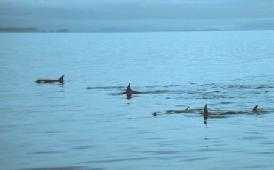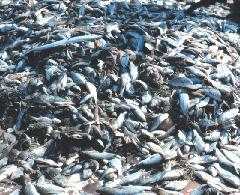|
"For centuries, we have viewed the oceans as an infinite resource beyond our capacity to harm. We now know that this is not true," said Panetta. "Our oceans are more vulnerable and more valuable than we ever imagined. If we want to sustain America's proud fishing industry, then we need to take a hard look at how pollution, development and fishing activities are harming the oceans."
In their report to the Commission, authors Paul Dayton of the Scripps Institution of Oceanography, Simon Thrush of the National Institute of Water and Atmosphere Research in New Zealand, and Felicia Coleman of Florida State University, find overwhelming evidence that the unintended consequences of fishing on marine ecosystems are "severe, dramatic, and in some cases, irreversible."
The report finds that certain fishing activities can deplete populations of fish and other marine species, which in turn alters food webs and ecosystems. By removing top predators, such as sharks and tuna, fishing can disrupt predator-prey relationships.
Fishing can also endanger marine mammals, seabirds, sea turtles, and certain species of fish, which are caught accidentally by drift nets, long lines and other indiscriminate fishing equipment. Other equipment, such as bottom trawl nets that rake the sea bottom, may alter the very structure and function of marine habitats.
|


